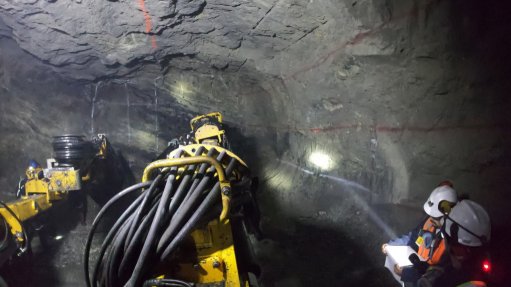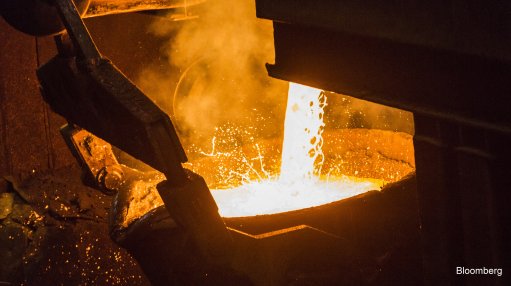Commonwealth launches draft CCS method for ERF
PERTH (miningweekly.com) – The Commonwealth government has invited public consultation on a draft carbon capture and storage (CCS) method for the Emissions Reduction Fund (ERF).
Accelerating the commercial deployment and uptake of CCS will help to significantly reduce Australia’s emissions while protecting industries and jobs, and creating new ones, Minister for Energy and Emissions Reduction Angus Taylor said on Tuesday.
CCS is one of five priority methods being developed in 2021 under the ERF and it is a priority area under government’s Technology Investment Roadmap.
Taylor said the ERF was one of the world’s most rigorous carbon offset programmes and accelerating new projects to unlock the emissions and economic benefits of carbon capture technology was a focus of the Morrison government.
“Australia consistently meets and beats our emissions reduction targets and we do that without imposing new costs or taxes on households or businesses,” he said.
“The ERF is central to our 'technology, not taxes' approach to reducing emissions. We are continuing to support farmers, businesses and communities to adopt new technologies that reduce emissions and boost their economic opportunities.
“Including CCS projects under the ERF will help unlock more low-cost abatement for Australia, underpin new and expanding industries, and lead to job creation and economic opportunities, including in regional areas.”
The International Energy Agency and the Intergovernmental Panel on Climate Change both regard carbon capture technologies as essential to achieve the goals of the Paris Agreement, Taylor pointed out.
He said that fast-tracking the development of new ERF methods was a recommendation of the King Review and would help achieve a greater range of low-cost abatement through the scheme.
Through the 2020/21 Budget, the government committed more than A$40-million of additional resourcing to the Clean Energy Regulator to halve the development time of new ERF methods to less than 12 months.
In addition to CCS, new methods being developed this year include blue carbon, soil carbon, biomethane or green gas, and plantation forestry.
The Clean Energy Regulator develops priority methods through a co-design process with industry, potential end-users, scientists and technical experts, and the Emissions Reduction Assurance Committee.
The Australian Petroleum Production and Exploration Association (Appea) on Tuesday welcomed the public consultation, with CEO Andrew McConville saying the development of a method for CCS under the ERF was an important way to recognise the role it can play as one of a number of low emissions technologies with the potential to deliver step-change emissions reductions.
“All technology, including hydrogen and CCS, should be on the table to help reduce emissions, so this is a good move,” McConville said.
“Just as government investment in renewables has fast-tracked projects, this could do the same and create thousands of jobs in the process. There is no silver bullet in tackling climate action and all options need to be considered to help Australia reach net zero.
“Australia has a natural competitive advantage to implement CCS with known high quality, stable geological storage basins, existing infrastructure, world-class technical expertise and regulatory regimes (environment protection, carbon accounting and reporting, and financial services).
“Australia needs low-cost carbon abatement to maintain its position as a leading energy exporter and ensure international competitiveness in a cleaner energy future. With scale and experience, the cost of CCS will decrease, creating the potential to deliver competitive, large-scale abatement for existing industries and new industries such as hydrogen and ammonia,” McConville said.
He noted that just as liquefied natural gas (LNG) exports were playing an important role in reducing global emissions, CCS in Australia could play an important role in securing the future of Australia’s oil and gas industry in a cleaner energy future.
“Natural gas with CCS is also a pathway to a large-scale clean hydrogen industry. Australia’s LNG export success means the Australian upstream oil and gas industry has the technology, expertise, and commercial and trade relationships to make, in particular, hydrogen exports a reality.
“Developing a local hydrogen industry could enable lower emissions both in Australia and internationally, reduce energy costs, deliver energy security, together with new employment and manufacturing opportunities,” he added.
Comments
Press Office
Announcements
What's On
Subscribe to improve your user experience...
Option 1 (equivalent of R125 a month):
Receive a weekly copy of Creamer Media's Engineering News & Mining Weekly magazine
(print copy for those in South Africa and e-magazine for those outside of South Africa)
Receive daily email newsletters
Access to full search results
Access archive of magazine back copies
Access to Projects in Progress
Access to ONE Research Report of your choice in PDF format
Option 2 (equivalent of R375 a month):
All benefits from Option 1
PLUS
Access to Creamer Media's Research Channel Africa for ALL Research Reports, in PDF format, on various industrial and mining sectors
including Electricity; Water; Energy Transition; Hydrogen; Roads, Rail and Ports; Coal; Gold; Platinum; Battery Metals; etc.
Already a subscriber?
Forgotten your password?
Receive weekly copy of Creamer Media's Engineering News & Mining Weekly magazine (print copy for those in South Africa and e-magazine for those outside of South Africa)
➕
Recieve daily email newsletters
➕
Access to full search results
➕
Access archive of magazine back copies
➕
Access to Projects in Progress
➕
Access to ONE Research Report of your choice in PDF format
RESEARCH CHANNEL AFRICA
R4500 (equivalent of R375 a month)
SUBSCRIBEAll benefits from Option 1
➕
Access to Creamer Media's Research Channel Africa for ALL Research Reports on various industrial and mining sectors, in PDF format, including on:
Electricity
➕
Water
➕
Energy Transition
➕
Hydrogen
➕
Roads, Rail and Ports
➕
Coal
➕
Gold
➕
Platinum
➕
Battery Metals
➕
etc.
Receive all benefits from Option 1 or Option 2 delivered to numerous people at your company
➕
Multiple User names and Passwords for simultaneous log-ins
➕
Intranet integration access to all in your organisation


















